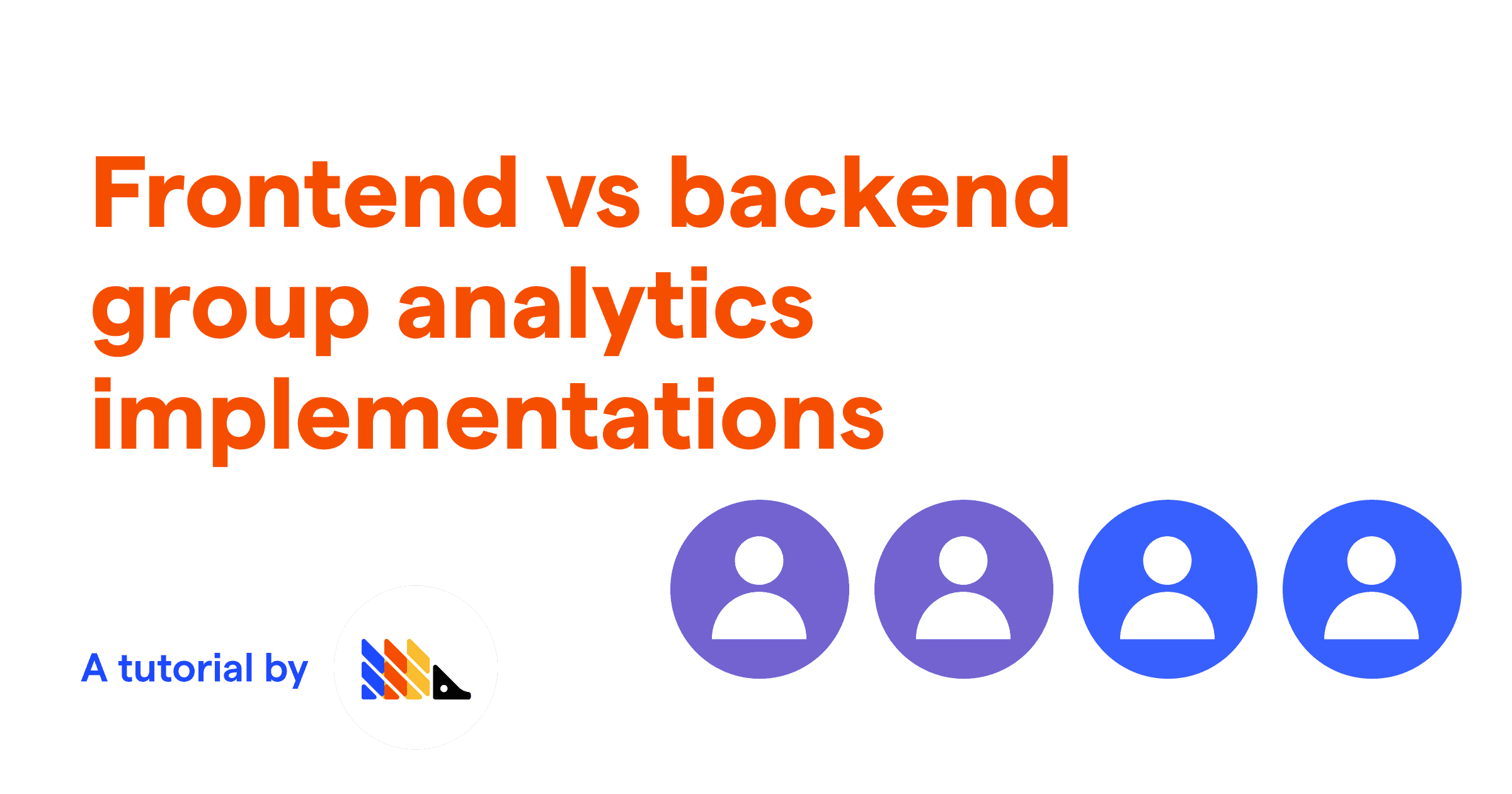Group analytics is a powerful feature for understanding how groups such as organizations, customers, and companies use your product as a unit. It provides a new level of analysis between individual users and all your users.
When implementing group analytics, there are some differences to look out for between the frontend implementation and the backend one. This tutorial goes over why there are differences and how to implement group analytics on the frontend compared to the backend.
Why are there differences
Before we go into the implementation, it is useful to understand why there are differences between the frontend and backend.
At PostHog, we think about (and store) everything as events. This means a group for us is a set of events related to a group identity. People (in PostHog) are the same, a set of events related to a person identity.
When you shift your thinking from a group as a set of people to a group as a set of events (with people identities), the differences between the frontend and backend implementation make more sense.
To further help this make sense, let’s look at both frontend and backend implementation
Frontend group analytics implementation
It is relatively easy to implement frontend group analytics because we abstract away some of the details around connecting groups to events. On the frontend, we assume once you identify a user and connect them to a group, you want all events a user creates to include the group data. By treating everything they do as a “session” (the JavaScript library is stateful), we automatically do this for you.
A standard pattern is identifying the user, connecting them to a group, then capturing events.
On the frontend, you also use the group call to update the properties of your group. The below example does both. It connects the user to the group and updates the group’s properties.
Because sessions connect users and groups, you need to call posthog.reset() when a user changes (logs out) to ensure events aren’t captured as belonging to that user and group. If you want to connect the user back to a group, you’ll need to call posthog.group() again.
Backend group analytics implementation
The backend implementation is different. Backend libraries have no concept of a session (they aren’t stateful). This means they don’t get the abstraction of combining the user (person) and group. Every time you capture an event, you must add the group data to it.
You also can’t update the group properties from the capture call. You must use a separate group_identify which looks like this:
PostHog currently stores groups separately from events, but soon, we will merge them. This means calling group_identify will not update the group details for past events (like it does now). To handle this, we recommend calling group_identify whenever group properties change. This ensures events always have the most updated group properties.
The benefit of the backend is that you don’t have to call reset() when you’re done because you have no session to reset. There are no sessions because the backend usually deals with multiple requests from different people one after another. It is awkward to enforce a session that lasts only one request, and this also reduces flexibility for implementers. Instead, you can add group analytics where and when you need it on the backend.
Next steps in group analytics
This should give you a better understanding of how you need to implement frontend vs backend group analytics. From here, you can utilize your group analytics to view groups and their properties, analyze group insights, and setup group feature flags.
